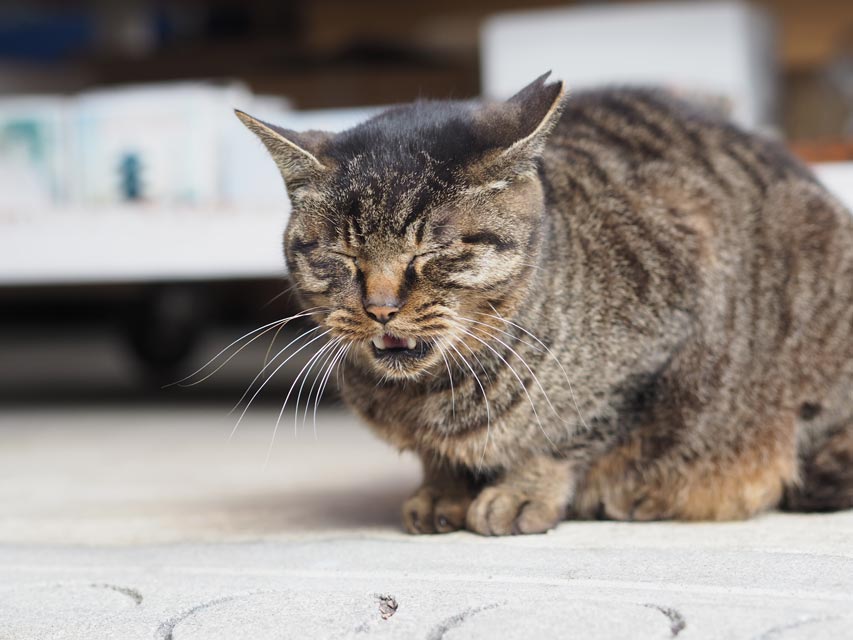Panting in Cats: What Does It Mean?

Dogs are well-known for their panting. It's one of the ways they stay cool because they don't have that many sweat glands. But it's not the same for cats; they don't pant normally, so when you see this behavior, it's time to pay close attention.
Do Cats Pant After Exercise?
Most of the time, cats do not pant after exercise or because they're too warm. Once in a while, however, a cat may pant for a very short time in one of those situations. If you see your cat panting and you know he just finished some vigorous exercise, watch him carefully. If the panting doesn't resolve in a few minutes, it's time to call the veterinarian. If your cat pants routinely after exercise or pants following minimal effort, tell your vet right away.
Cats Might Pant Due to Stress
Some cats pant when they get extremely stressed, such as when they are taken for a car ride or are exposed to a new pet, especially a dog.
Once again, in these cases, you should be able to draw a clear parallel between your cat's panting and the inciting stressful event. Also, the panting should resolve quickly once your cat is calm and the stressor is removed.
Cats sometimes open their mouths, tilt their heads back, and breathe for a few seconds when they are smelling something exciting to them. It can be mistaken for panting, but it isn't: it's the Flehmen Response. Take a look at this video to see what it looks like: "Flehmen Response in Cats: Video." If you're not sure, try to record an episode to show your vet.
Medical Causes of Panting in Cats
Most of the time, when a cat pants, it's the result of a medical problem. Here are the most common ones:
- Asthma. This condition is relatively common in cats. While experts don't know what causes it in every case, most agree that the trigger is allergens or irritants that provoke an immune system over-response when the cat breathes them in.
- Congestive heart failure (CHF). Heart problems are common in cats, and they often don't result in any signs of illness or even a heart murmur until the condition is advanced enough to result in heart failure. That means the heart can no longer keep up with the demands of providing oxygen to all the cat's tissues, and fluid is accumulating in and around the lungs. That can lead to panting, and it's a serious situation.
-
Respiratory infection (URI). Severe upper respiratory infections that result in a clogged up nose can cause cats to pant.
- Heartworm disease. This condition can cause breathing problems including panting in cats because of inflammation in the respiratory tract associated with the parasites.
- Pain. Severe trauma, pain, and shock can cause panting in cats.
- Anemia. Cats suffering from an illness or condition that results in severe anemia might pant because they're not getting enough oxygen to their tissues.
In general, panting in cats is abnormal, and you should call your veterinarian if you see it. Additionally, other signs of respiratory distress in cats such as labored breathing, wheezing, coughing, and increased respiratory rate (even in the absence of panting) are serious concerns that need to be checked out by a vet.
You May Also Like These Articles:
Cats Snoring: Normal or Abnormal?
Flehmen Response in Cats: VIDEO
Feline Asthma: Lower Airway Disease
Upper Respiratory Tract Conditions in Cats
How to Tell If Your Cat Is in Pain
Notice: Ask-a-Vet is an affiliated service for those who wish to speak with a veterinary professional about their pet's specific condition. Initially, a bot will ask questions to determine the general nature of your concern. Then, you will be transferred to a human. There is a charge for the service if you choose to connect to a veterinarian. Ask-a-Vet is not manned by the staff or owners of CatHealth.com, and the advice given should not delay or replace a visit to your veterinarian.





